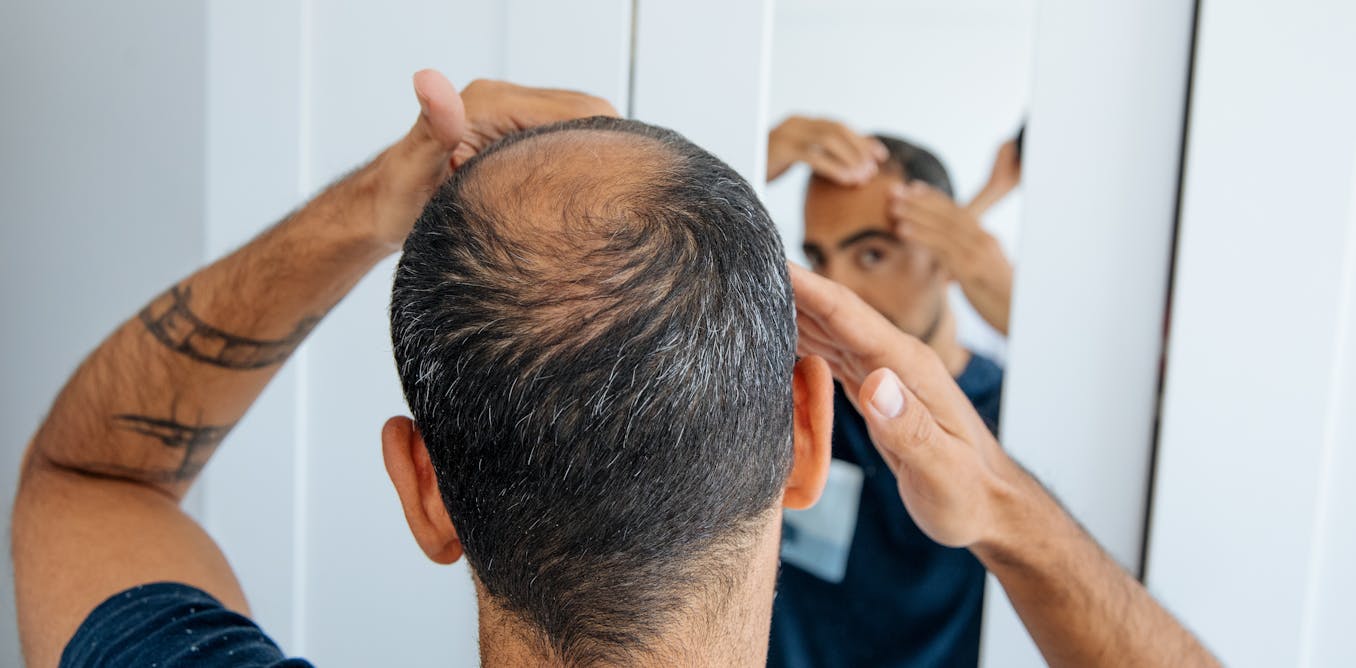Do Gut Microbes Control Your Personality? | Kathleen McAuliffe | TED
In Kathleen McAuliffe’s TED Talk, “Do Gut Microbes Control Your Personality?” she delves into the fascinating world of microbiota – the tiny organisms that inhabit the human body, particularly in the gut. McAuliffe presents compelling evidence that these microbes have a profound influence on our behavior, mood, and even personality.
One striking example she provides is the case of “bubble mice” – mice raised in sterile environments without gut bacteria. These mice displayed noticeably different behaviors and cognitive abilities compared to their counterparts with normal microbiota. McAuliffe also discusses experiments in which gut bacteria from overweight or depressed individuals were transferred to mice, resulting in the animals exhibiting symptoms akin to those individuals.
The talk delves into the mechanisms through which gut bacteria influence the brain, including the production of neurotransmitters and their direct interaction with the vagus nerve. McAuliffe also discusses the potential of microbiota-based treatments for various neuropsychiatric conditions, such as autism spectrum disorder, ALS, and even Parkinson’s disease.
While acknowledging that it’s early days in this line of research, she emphasizes the potential for groundbreaking treatments and interventions that could emerge. Ultimately, McAuliffe’s talk challenges conventional ideas of self-control and free-will, suggesting that our behavior and personality are shaped not just by our own genetics and experiences but also by the vast community of microbes living within us.
Watch the video by TED
We’ve been debating the question forever. Is there such a thing as free will? Am I captain of my ship? Master of my own destiny? I’m no philosopher. Biology is my realm and from where I stand, there is clearly more than one of us at the helm. I’m referring to the fact
That half the cells in your body do not contain your own DNA. They belong to bacteria, protozoa, fungi and other unicellular creatures. These tiny tenants, collectively known as our microbiota, are most abundant in the gut, where they aid in digestion and carry out many other essential functions.
Most amazing, they “talk” to your brain. They influence your mood, your energy level, your appetite, your memory, perhaps even your personality. I can say this with confidence owing to mice like this, which have no microbes. They’ve been dubbed bubble mice because they’re raised in sterile facilities.
Contrast their behavior to that of a normal mouse, which is colonized at birth with microbes, and you’ll notice striking differences. A normal mouse is a quick and eager learner. Show it a novel object, like a napkin ring, and it will circle and sniff it with great interest.
Place it in a maze and it’s keen to explore new passages and remembers where it’s been. A bubble mouse could not be more different. It lacks natural curiosity. It’s slow to learn, quick to forget, and just as inclined to favor the familiar over what’s new, exciting, or different. Indeed, they don’t even protest
If separated at a young age from their mothers, a trauma that in a normal mouse would lead to lifelong skittishness. But if you colonize a bubble mouse early in life with the normal microbiota for that strain, guess what happens? Their behavior normalizes. We’re not mice. So does any of this apply to us?
Actually a mountain of evidence suggests that it does. Consider this. If I transfer gut bacteria from an overweight twin to bubble mice, the animals fatten up. Transfer gut bacteria from a thin twin to bubble mice, feed them the same rat chow and the animals stay thin.
Similarly, if I transfer gut bacteria from a depressed person to a bubble mouse, the animal will display depressive-like symptoms. For example, if placed in a water tank, it stops swimming sooner than a mouse that receives gut bacteria from a non-depressed person. That mouse will keep trying to escape.
It’s not so quick to give in to despair. How in the world can gut bacteria influence how we feel and act? They have many techniques, actually. But here’s one of their coolest. Gut bacteria produce hoards of psychoactive compounds, including half a dozen neurotransmitters.
Put simply, gut bacteria can talk to the brain because we, meaning our microbes and human cells, all speak the same language. In fact, some scientists think this language was actually invented by bacteria. I should point out that this long-distance conversation
Is facilitated by a major nerve cable that runs from your gut to your brain. It’s called the vagus nerve, and it can be directly activated by bacteria or by the psychoactive compounds they produce. Incidentally, about 80 percent of the traffic on this cable
Is going from the gut to the brain and not the other way around, as had long been assumed. Of course, gut bacteria can also rely on the circulatory system to transport their psychoactive compounds upstairs. And there’s one other very important, albeit indirect way that gut bacteria signal the brain. And that’s by misbehaving.
When aggressive bacteria invade the gut wall, immune cells rush to the scene and surprising scientists, those immune cells and related compounds don’t always stay localized in the gut, but can travel to the brain where they trigger inflammation and depression. For reasons that are not well understood,
Inflammation and depression often go hand in hand. They’re a destructive duo. Interestingly, a rapidly advancing treatment for mental disturbances is called vagus nerve stimulation, or VNS. As its name suggests, it entails electrically stimulating the vagus nerve via an electrode implanted in the chest. Although this therapy evolved independently of microbiota research,
Some scientists think that the current may actually mimic the effects of gut bacteria on the nerve. That’s speculative, but what is clear is that VNS strengthens the gut barrier, preventing pathogenic bacteria from breaching it and causing an inflammatory response that spreads to the brain. Encouragingly, the FDA has already approved VNS
For the treatment of severe epilepsy and depression unresponsive to standard therapy. What’s more, early clinical trials suggest the procedure may also benefit people suffering from ADHD, OCD and PTSD. In parallel with these developments, microbiota researchers are attempting to treat mental disturbances by changing the composition of our gut bacteria or alternatively,
By boosting or blocking the action of the chemicals these organisms make. To that end, they’re making exciting progress in pinpointing exactly which bacteria are good or bad actors in various neuropsychiatric conditions. People with autism spectrum disorder, for example, often have high amounts of a bacteria molecule in their blood, and in rodents,
This molecule has been shown to raise anxiety and even alter brain connectivity. Axial Therapeutics, a company at the forefront of developing microbiota-based treatments, is now conducting a clinical trial of a drug designed to prevent this destructive molecule from reaching the brain. The goal is to treat irritability in children with autism.
Meanwhile, a bacterium found in yogurt called Lactobacillus reuteri has shown to promote social bonding in animal models of autism. Both good and bad bacteria have similarly been linked to amyotrophic lateral sclerosis, or ALS. That’s the neurodegenerative disease best known for paralyzing the great baseball player Lou Gehrig at the peak of his career.
Like him, most patients die within just a few years of being diagnosed with the disease. A small minority live ten years or longer. In animal models of ALS, Israeli researchers have recently discovered two bacteria that accelerate the disease and another that slows its development. They suspect the benefits of the good bacteria
Are due to a vitamin that it produces, called nicotinamide. Microbiota researchers are making even greater progress in unraveling the root causes of Parkinson’s disease. If you know the actor Michael J. Fox, if you’ve seen many of his videos, you’ll know its symptoms are shaking, stiffness and an unsteady gait.
It’s long been known that the disease involves the misfolding of a protein called alpha-synuclein in this part of the brain. As the misfolding spreads, brain cells start to die, symptoms worsen. The big mystery is, what causes alpha-synuclein, the Parkinson’s protein, to misfolded in the first place.
Several labs have recently converged on one likely culprit. The guts of some people, their research suggests, harbor a strain of E. coli that churns out a misfolded compound very similar to the Parkinson’s protein. And when misfolded variants of this protein are injected into the guts of susceptible rodents,
It causes the normal protein in the intestinal lining to misfold in turn. Like falling dominoes, this wave of misfolding proteins slowly spreads up the vagus nerve, and in about two months, you see clumped up protein in exactly the part of the brain that degenerates in Parkinson’s patients. Most importantly,
These fresh glimpses into the origins of the disease are suggesting new ways of intervening in its progression, a prospect, needless to say, that has experts super excited. Of course, it’s early days. We don’t yet know whether successful treatments will emerge from this line of research, or, for that matter,
Any of the other investigations I’ve described. But I think you’ll agree there’s cause for optimism. If nothing else, I hope I’ve convinced you that your behavior is controlled not just from the top down, but quite literally from the bottom up. In short, the person you call “I” is really “we.” Thank you.
About TED
The TED Talks channel features the best talks and performances from the TED Conference, where the world’s leading thinkers and doers give the talk of their lives in 18 minutes (or less). Look for talks on Technology, Entertainment and Design — plus science, business, global issues, the arts and more. You’re welcome to link to or embed these videos, forward them to others and share these ideas with people you know.
Video “Do Gut Microbes Control Your Personality? | Kathleen McAuliffe | TED” was uploaded on 01/22/2024 to Youtube Channel TED



































